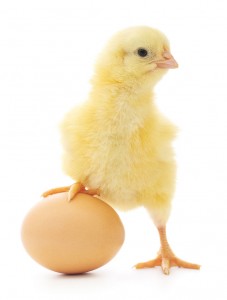Trending
FREE RANGE (adj.): Cracking the code on egg terminology
December, 2015
| As we make our way through life, we’re constantly bombarded with choices. And one of them we face on a fairly regular basis as we peruse the chilly, well-lit refrigerated section at the grocery store has to do with the humble egg. Free-range, free-run, organic, omega-3, white, brown, large, medium…well, let’s just say the possibilities can leave you feeling scrambled. A common choice made by many is to reach for the carton with the words Free-Range stamped across it. But what exactly does it mean to be free-range? |

What’s the Dif?
According to the Egg Farmers of Alberta, there are two factors to take into consideration when an egg gets its official classification: the type of feed a hen eats and the type of housing provided to that hen. There are also 10 categories under which an egg can fall—and this is where the confusion can settle in. For example, there are free-range eggs and free-run eggs, but what’s the difference? For starters, free-range refers to eggs that come from hens that are able to walk around freely in a barn or aviary and that also have access to outdoor runs. Free-run eggs, on the other hand, come from hens that are able to walk around freely in an enclosed barn but are not required access to the outside.
50 Shades of Yellow
A common belief is that the colour of an egg’s yolk reflects its nutritional value. Not true, according to nutritional scientists. The colour of a yolk, which can vary from a pale yellow to a deep orange, is dependent on something called carotenoids, which are natural pigments found in some plants. The yolks of free-range eggs tend to be darker in colour because hens that are free to roam outside have more opportunities to eat pigmented food.
Getting Fresh
Brian Mendieta, a local farmer who raises free-range chickens on his farm (12 Acres Farm) is an ardent believer in allowing the chickens to walk around freely, inside and out, and thinks that free-range hens that are fed the best food will produce the best eggs. The key, he says, to getting a great free-range egg is to buy them straight from the farmer, where you can see the conditions in which the hens are living and what they’re eating. “There’s no denying that true free-range eggs are way tastier. Bought from a farmer, they’re fresh and they have a much thicker shell, yolks and whites,” says Brian, whose free-range eggs are an important ingredient at 12 Acres Restaurant and at his booth at the St. Albert Farmers’ Market.
Hard Boiled in Controversy
Of course, free-range eggs don’t come without controversy. Besides the age-old debate on eggs—are they good for you, or are they not?—there is this other layer to the conversation: since the definition of what it means to be a free-range egg is somewhat vague in regard to the part that says “provides access to the outdoors,” (with no mention of length of time), who’s to know how long a free-range hen is actually allowed to be outside?
The living conditions of chickens have many animal activists (including celebrities and celebrity chefs) speaking out against what they believe are the sad realities facing egg-laying chickens on big commercial farms. These birds are often crowded in a cage, along with seven or eight others, where they live out their short lives eating high-protein diets so they can mass-produce eggs. The thought of those types of conditions have a lot of people demanding a more humane treatment of egg-laying hens and accountability by retailers and the big commercial consumers of egg products. So, as consumers, the choices we make in the egg aisle can make a difference on the type of egg we decide to bring home and also on what type of farming practice we support. t8n
Fast Fact Some may think that free-range is synonymous with organic. Not so. To be categorized as organic, hens must be raised in a free-range housing system AND eat a diet that’s been certified organic (meaning nothing grown with the use of pesticides, herbicides or commercial fertilizer). Organic eggs must also have a certified organic symbol on their carton.












